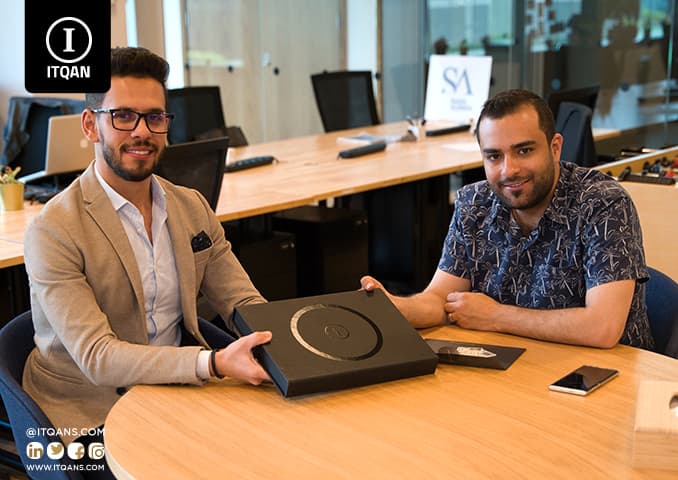Dubai Investment Laws Dubai is one of the most attractive investment destinations in the world, thanks to its dynamic economic environment, advanced infrastructure, and encouraging government policies. The city attracts companies and investors from all over the world, thanks to the facilities available and the wide economic opportunities it offers. Understanding Dubai investment laws is essential for any investor who wants to enter the UAE market successfully. Dubai investment laws are characterized by development and flexibility, as the government is always seeking to improve the investment environment and enhance the city’s attractiveness as a global business hub.
With its extensive experience in legal and business consulting, Itqan plays a crucial role in helping investors navigate this complex environment. By providing professional and accurate advice, Itqan ensures that investors are in line with all legal and regulatory requirements, contributing to the smooth achievement of their investment objectives. The company provides the necessary guidance at every step of the investment process, starting from choosing the optimal legal structure for the company, through submitting the necessary applications, and up to complying with local and international requirements.
Dubai’s investment laws include a set of measures and policies that aim to protect investors’ rights and promote economic growth. The laws focus on providing legal protection for businesses, simplifying administrative procedures, and offering incentives to investors through flexible tax policies and operational benefits. By working with Itqan, you can ensure compliance with these laws and avoid any potential complications, allowing you to invest successfully in one of the most dynamic and innovative markets in the world.

جدول المحتوى
ToggleBasic requirements for establishing a company in Dubai
Establishing a company in Dubai is an important strategic step towards entering one of the most dynamic markets in the world. Dubai is known for its strategic location, advanced infrastructure, and flexible economic system, making it a preferred destination for investors from all over the world. However, starting a business in Dubai requires adhering to a set of basic requirements to ensure compliance with all local laws and regulations. Establishing a company in Dubai involves a comprehensive regulatory process that requires careful planning and the provision of necessary documents. Understanding these requirements and submitting the correct documents on time can greatly contribute to speeding up the incorporation procedures and avoiding any potential delays. Basic requirements for establishing a company in Dubai :
- Choosing the type of company: Deciding what type of company you want to establish is the first step. You can choose from several types, such as limited liability companies (LLC), public joint stock companies, sole proprietorships, or companies in free zones, each of which has its own requirements.
- Choosing a company name: A trade name must be chosen that complies with local laws and registration regulations. The name must not be similar to other company names and must comply with the naming rules imposed by the competent authorities.
- Submitting a business plan: It requires submitting a detailed business plan that explains the nature of the business, objectives, and financial strategy. This plan helps in convincing the competent authorities and investors of the feasibility of the project.
- Worksite insurance: You need to secure a worksite that complies with regulatory requirements, whether it is an office or an industrial facility, and a lease agreement must be provided proving ownership or rental of the site.
- Preparing legal documents: It requires submitting a set of legal documents such as passports for founders and directors, the articles of association and bylaws, and a copy of government approvals, depending on the type and location of the company.
- Obtaining a trade license: You must apply for a trade license from the Department of Economic Development or the regulatory body in the free zone of your choice. This requires payment of the prescribed fees and submission of the required documents.
- Opening a bank account for the company: A bank account must be opened in the name of the company to facilitate financial transactions. The bank will ask you to provide incorporation documents and proof of identity.
- Labor registration and insurance: If the company will employ workers, the workers must be registered with the Ministry of Human Resources and Emiratisation, and ensure that they obtain the necessary health and social insurance.
- Obtaining visas and residencies: You need to apply for work and residency visas for investors, managers and employees, according to the legal requirements of each case.
By following these steps and meeting the basic requirements, investors can establish their companies in Dubai efficiently and smoothly, contributing to achieving success and growth in one of the most prominent global economic destinations.
Tax benefits offered by Dubai to investors
Dubai is considered one of the most prominent investment destinations in the world, thanks to its advanced economic environment and the opportunities available in it. Among the advantages that make Dubai a preferred destination for investors, tax benefits stand out as a major factor. Dubai seeks to attract global investments by providing a flexible and encouraging tax framework, which contributes to enhancing economic growth and providing a suitable business environment for investors. Tax benefits form an essential part of the incentives provided by Dubai, making it an attractive environment for investment and business growth. Tax benefits provided by Dubai to investors:
- Corporate Tax Exemptions: Dubai offers tax exemptions to companies registered in free zones. In other words, companies operating in free zones are often exempt from corporate tax, allowing them to retain all of their profits without paying income tax.
- No personal income tax: One of the notable advantages of Dubai is that there is no personal income tax on individuals. This means that investors and employees can benefit from all their financial gains without any tax deduction, which enhances the city’s appeal as a destination for high-caliber talent.
- VAT exemption for certain activities: Although there is a 5% VAT in Dubai, there are exemptions available for certain activities and services, such as education and health. This helps reduce the tax burden on companies operating in these sectors.
- No Capital Gains Tax: Dubai does not impose capital gains tax, which enhances the ability of investors to generate returns from investments without worrying about additional tax liabilities.
- Free Zone Tax Exemptions: Some free zones in Dubai offer additional tax incentives, including exemptions from customs duties on imports and exports, which reduces operating costs and contributes to improved profit margins.
- Double Taxation Avoidance Agreements: Dubai has concluded several double taxation avoidance agreements with different countries, which helps companies avoid paying double taxes on the same income in more than one country, and enhances the stability of international business operations.
These tax benefits contribute to enhancing Dubai’s attractiveness as an investment destination, providing investors with a favourable tax environment that supports economic growth and supports long-term business strategies.

Learn about investing in Dubai
At the end of the review of Dubai ’s investment laws in cooperation with Itqan, it becomes clear that investing in Dubai represents a distinct strategic opportunity thanks to the advanced and encouraging legal environment provided by the city. Dubai’s investment laws are distinguished by their flexibility and innovation, as the UAE government has sought to provide an advanced regulatory framework that contributes to enhancing economic growth and attracting global investments. The presence of advanced infrastructure and supportive policies contributes to making Dubai a preferred destination for investors from all over the world.
With its in-depth expertise in legal and investment consulting, Itqan plays a crucial role in guiding investors towards achieving their investment goals smoothly. By providing comprehensive professional advice, Itqan helps companies navigate various legal and regulatory requirements, ensuring full compliance with the laws and avoiding any complications that may hinder success. Itqan ensures investors are provided with optimal guidance in all aspects of investment, from strategic planning to implementation and expansion.
Partnering with Itqan provides investors with the peace of mind that they are in safe hands, as the company handles all legal and administrative details efficiently and professionally. Thanks to this partnership, investors can focus on achieving their business goals and taking advantage of the opportunities that Dubai offers without being distracted by complex legal issues. Thanks to its advanced investment laws and partnerships with specialized consulting firms such as Itqan, Dubai remains one of the best investment destinations in the world, enhancing investors’ ability to achieve success and growth in a dynamic market full of opportunities.
Frequently Asked Questions About Investing in Dubai
What are the main types of businesses that can be established in Dubai?
Investors can establish different types of businesses in Dubai, including limited liability companies (LLCs), public and private joint stock companies, sole proprietorships, and holding companies. Companies can also be established in free zones, which offer additional benefits such as full foreign ownership and tax exemptions.
What are the basic requirements for setting up a company in Dubai?
To set up a company in Dubai, a set of documents are required such as passports of the founders and directors, a business plan, memorandum and articles of association, proof of address, and eligibility declarations. Requirements may vary depending on the type of company and location (free zone or mainland).
Does setting up a company in Dubai require a local partner?
In free zones, a local partner is not required, as foreigners can own 100% of the company. In mainland Dubai, a local partner with 51% of the company’s shares may be required for some types of companies, except for activities where full foreign ownership is permitted.
What tax benefits does Dubai offer to investors?
Dubai offers a number of tax benefits to investors, including corporate tax exemption for businesses set up in free zones, no personal income tax, and other tax benefits such as VAT exemptions for certain activities and services.
How can investors obtain work and residence visas in Dubai?
Investors can obtain work and residence visas by submitting an application to the relevant authorities in Dubai. Obtaining visas requires submitting necessary documents such as a passport, employment contract or proof of company ownership, and approval from government agencies.
What are the legal procedures required to register a company in Dubai?
Legal procedures include registering the company with the relevant government departments, such as the Department of Economic Development or the regulatory authority in the free zones. This requires submitting the required documents, completing the legal forms, and paying the prescribed fees.

















